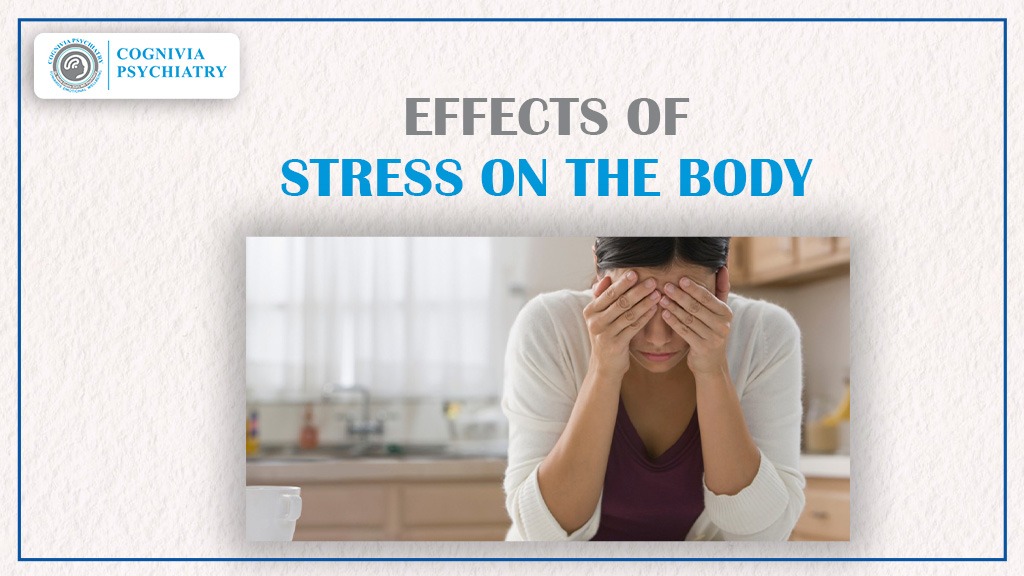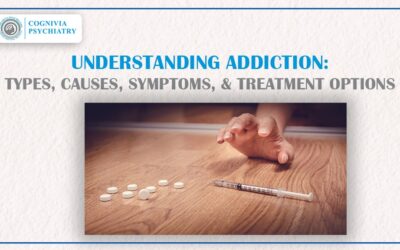
Stress is a natural part of life and is experienced by everyone at some point. It is the body’s response to a demand or challenge and can be beneficial in small doses. However, when stress becomes chronic or overwhelming, it can have negative effects on both physical and mental health. Learning how to manage stress effectively is essential for maintaining overall well-being and achieving personal and professional goals.
- Effects of Stress on the Brain
Stress can affect the brain in a variety of ways. When the body is under stress, the brain triggers the release of stress hormones like cortisol and adrenaline. These hormones help prepare the body for a fight or flight response, but when they are released frequently, they can cause damage to the brain.
One of the primary effects of chronic stress on the brain is that it can shrink the hippocampus, which is the part of the brain responsible for memory and learning. Studies have shown that people who are exposed to chronic stress have a smaller hippocampus than those who are not. This can lead to problems with memory and cognitive function.
Chronic stress can also increase the risk of developing anxiety and depression. Stress can alter the levels of neurotransmitters in the brain, including serotonin and dopamine, which can lead to mood disorders.
- Effects of Stress on the Immune System
Stress can also impact the immune system, which is responsible for protecting the body against infections and diseases. When the body is under stress, the immune system’s ability to fight off infections is weakened. This is because stress hormones like cortisol suppress the immune system’s response to infections.
Chronic stress can also lead to inflammation, which can cause a range of health problems, including heart disease, diabetes, and arthritis. Inflammation is the body’s natural response to injury or infection, but when it is persistent, it can damage the body’s tissues and organs.
- Effects of Stress on the Cardiovascular System
Stress can also have a significant impact on the cardiovascular system, which is responsible for pumping blood around the body. When the body is under stress, the heart rate and blood pressure increase, which helps the body prepare for a fight or flight response.
However, when stress is chronic, it can cause long-term damage to the cardiovascular system. Chronic stress can lead to high blood pressure, which can increase the risk of heart disease, stroke, and other cardiovascular problems.
Chronic stress can also cause the blood vessels to narrow, which can reduce blood flow to the heart and other organs. This can cause chest pain, shortness of breath, and other symptoms of heart disease.
- Effects of Stress on the Digestive System
Stress can also affect the digestive system, which is responsible for breaking down food and absorbing nutrients. When the body is under stress, it can cause a range of digestive problems, including:
- Nausea and vomiting
- Diarrhea or constipation
- Stomach pain or cramps
- Loss of appetite
Chronic stress can also lead to more serious digestive problems, such as irritable bowel syndrome (IBS) and inflammatory bowel disease (IBD). These conditions can cause chronic pain, diarrhea, and other symptoms that can significantly impact a person’s quality of life.
- Effects of Stress on the Respiratory System
Stress can also affect the respiratory system, which is responsible for breathing. When the body is under stress, it can cause a range of respiratory problems, including:
- Shortness of breath
- Rapid breathing
- Wheezing
- Chest tightness
These symptoms can be particularly problematic for people with asthma or other respiratory conditions. Chronic stress can also weaken the immune system, making it more difficult for the body to fight off infections that can affect the respiratory system.
- Effects of Stress on the Muscular and Skeletal Systems
Stress can also affect the muscular and skeletal systems, which are responsible for movement and support of the body. When the body is under stress, it can cause muscle tension and pain, particularly in the neck, shoulders, and back.
Chronic stress can also increase the risk of developing musculoskeletal disorders like fibromyalgia, which is characterized by chronic pain and fatigue in the muscles and soft tissues. Stress can also cause bones to weaken over time, which can increase the risk of osteoporosis and fractures.
- Effects of Stress on the Reproductive System
Stress can also impact the reproductive system, which is responsible for producing and regulating hormones that control fertility and sexual function. When the body is under stress, it can disrupt the balance of hormones, leading to problems with fertility and sexual dysfunction.
Chronic stress can also lead to menstrual irregularities in women and a decrease in testosterone levels in men, which can affect sexual function and libido.
- Coping with Stress
While stress can have a significant impact on the body, there are ways to cope with stress and minimize its effects. Here are some tips:
- Practice relaxation techniques like deep breathing, meditation, or yoga
- Engage in regular exercise to reduce tension and improve mood
- Eat a healthy, balanced diet to support overall health
- Get enough sleep to help the body recover from stress
- Seek support from friends, family, or a mental health professional
In addition to these tips, there are other lifestyle changes that can be helpful in managing stress. For example, reducing alcohol and caffeine consumption can help reduce stress levels. Alcohol and caffeine are both stimulants that can increase feelings of anxiety and stress.
Engaging in hobbies or activities that you enjoy can also help reduce stress levels. Activities like reading, listening to music, or spending time in nature can be relaxing and help reduce feelings of stress.
If you are experiencing chronic stress and are struggling to manage it on your own, it may be helpful to seek support from a mental health professional. They can provide guidance on coping strategies, offer emotional support, and help you identify and address the underlying causes of your stress. It is also important to prioritize self-care in order to reduce the harmful effects of stress on the body. This includes getting enough sleep, eating a healthy diet, staying hydrated, and engaging in regular exercise. Self-care can help improve overall physical and mental health and reduce the impact of stress on the body.
Conclusion
In conclusion, stress is a natural response to challenging situations, but when it becomes chronic, it can have a significant impact on the body. Chronic stress can cause a range of physical and mental health problems, including cardiovascular disease, digestive problems, and anxiety and depression. By practising healthy coping mechanisms, seeking support, and prioritizing self-care, individuals can reduce the harmful effects of stress on their body and improve their overall well-being.







